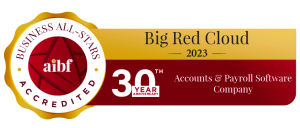Getting on with the job
One of the many consequences of lockdown has been the realisation that employees can be trusted to work from home. Businesses that use the lessons learned over the last nine months to get the most from their staff will continue to benefit long after we return to ‘normal’.
Business managers tend to fall into one of two groups – those who don’t believe that employees can be relied on to get on with their jobs without being seen or monitored all the time; and those who believe that if workers are given proper training and direction and a degree of flexibility they will just get on with it.
Made not to measure
Productivity is one of the most widely used words in business. Politicians fret about what we produce as a country because GDP is a measure of how well (or badly) they are managing our economy.
But many small companies don’t see the difference between productivity and ‘presence’ and assume that if they can see their staff, they must be doing what they are supposed to be doing. People who never miss a day of work are praised, but could their managers say for sure that they were more productive than colleagues who took time off when sick or dealing with a family emergency?
One-size-doesn’t-fit-all
Any worker can become less productive if they feel they are not supported by their employer. This can also lead to feelings of isolation, which can have a negative effect on mental health.
Video and audio conferencing has enabled companies to connect their staff during lockdown, but the timing of these calls need to reflect the fact that some employees might have childcare or caring responsibilities. By working with them to agree a flexible work schedule on a case-by-case basis, employers can empower them to work when they are most productive and really take charge of their working day.
It is also important that people working from home are not always thinking about work. This can be tough for someone working from a kitchen table, but they should be encouraged to take proper lunch breaks and log off at sensible times.
Technology can help
Surveillance software enables companies to monitor the activities of their staff during working hours, such as the websites they visit and the emails they send. But any company introducing such a system should first explain to its workers why it is being introduced and how it works.
If employees feel that having their activity tracked will help them work more flexible hours they will feel better about the idea of being under surveillance.
In the early months of lockdown we saw a massive surge in technology adoption as both consumers and businesses moved online. For those businesses that have not already done so, this is the perfect opportunity to implement a cloud-based accounting solution such as Big Red Cloud.
The demands of running a business are considerable. Making it easier for employees get on with their jobs will free up time that can be used constructively to plan for the future.




